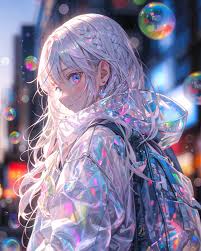In the burgeoning field of artificial intelligence, the creation of AI-generated anime has sparked significant debate regarding its ethical implications. As creators and enthusiasts dive deeper into this digital renaissance, it’s crucial to navigate the fine line between innovation and integrity.
Understanding AI Anime
AI-generated anime refers to animations or illustrations created with the assistance of artificial intelligence. This technology leverages machine learning algorithms to generate artwork that mimics the unique style of Japanese anime. Websites like ai anime have become hubs for enthusiasts and creators alike, showcasing the potential of AI in the realm of anime creation.
The Rise of AI in Artistic Creation
The advent of AI in art has democratized the ability to create, enabling individuals without traditional artistic skills to generate visually appealing content. This democratization raises questions about creativity, originality, and the value of human touch in art.
Ethical Considerations
Intellectual Property Rights
One of the primary ethical concerns revolves around intellectual property rights. AI algorithms often require extensive datasets of existing artwork to learn and generate new content. This process can lead to the creation of works that closely resemble the originals, potentially infringing on the copyright of the original creators.
Authenticity and Creativity
The authenticity of AI-generated content is another point of contention. Critics argue that art created by AI lacks the personal touch, intention, and emotion that come from human artists. This perspective challenges the notion of creativity, questioning whether AI can truly be creative or if it merely replicates patterns it has learned.
Economic Impact on Artists
The economic implications for traditional artists cannot be overlooked. AI-generated anime could significantly reduce the demand for human artists, impacting their livelihood. While some view this technology as a tool that can enhance an artist’s work, others fear it may replace human creativity in the industry.
Balancing Innovation with Ethics
To navigate the ethical landscape of AI-generated anime, stakeholders must engage in open dialogues to establish guidelines that protect intellectual property, ensure fair compensation, and maintain the integrity of artistic creation.
Policy Development
Developing policies that regulate the use of copyrighted materials in training AI algorithms is essential. These policies should aim to protect the rights of original creators while fostering innovation.
Transparency and Attribution
Ensuring transparency in the creation process and proper attribution to the original artworks used in AI training datasets is crucial. This approach would respect the contributions of human artists and acknowledge their influence on AI-generated content.
Supporting Artists
Initiatives to support artists in adapting to the evolving landscape can mitigate the economic impact. Workshops, grants, and platforms that encourage collaboration between AI and human artists can create new opportunities for creativity.
In conclusion, the ethics of AI-generated anime encompass a complex array of considerations, from intellectual property rights to the authenticity of creative expression. By addressing these issues head-on, the community can harness the benefits of AI while upholding the values that make anime a beloved art form worldwide.
